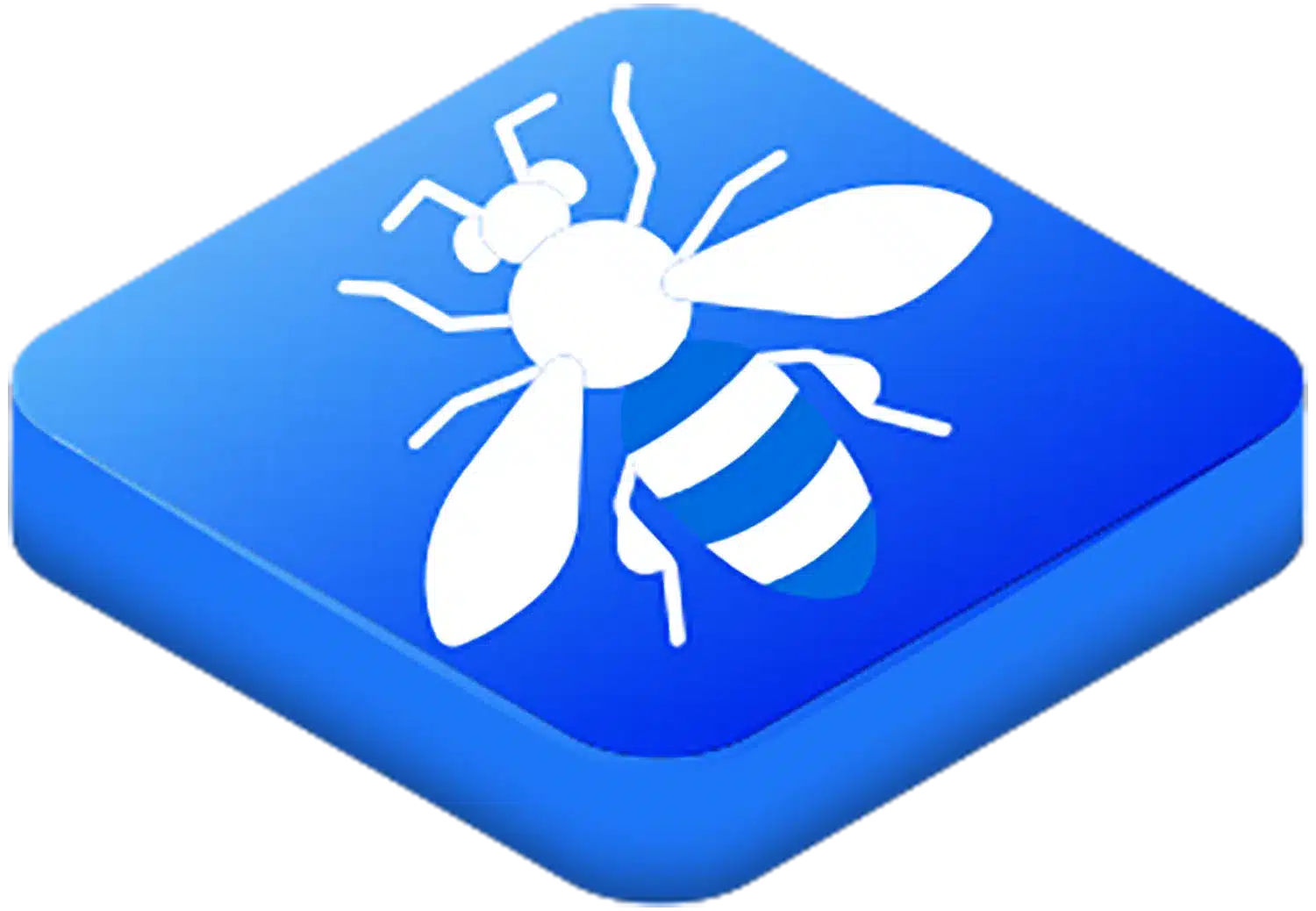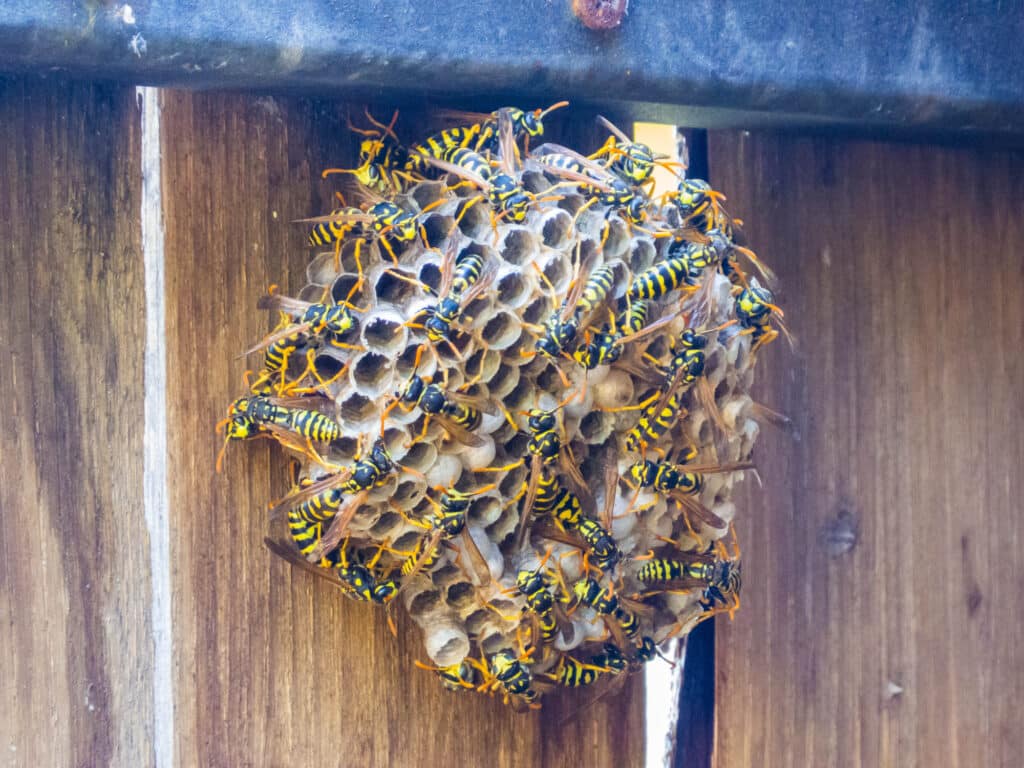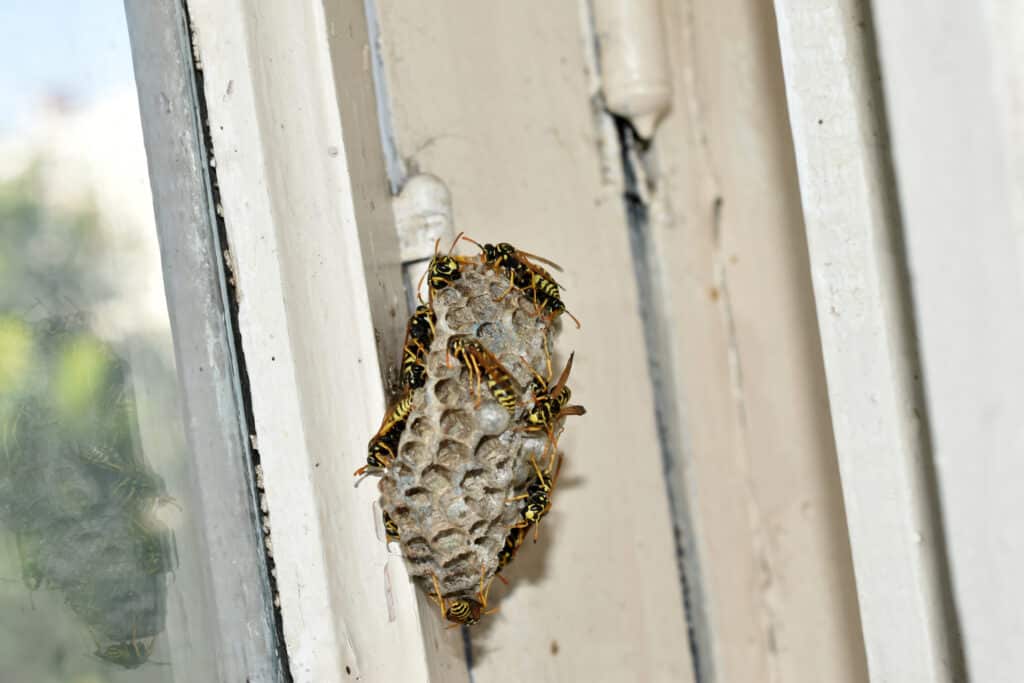
Wasp Prevention Guide
Keeping Wasps Out
Wasps are attracted to specific conditions around your home. By understanding their behavior and making your property less appealing, you can significantly reduce the likelihood of infestation. Here’s how Tennessee homeowners can discourage wasps from making themselves at home.
What Attracts Wasps to Your Yard
Stink bugs have a distinctive shield-shaped body with a marbled or mottled brown appearance. Their bodies are nearly as wide as they are long, giving them a somewhat flat, broad appearance. When viewed from above, their shape resembles a shield or pentagon. Their legs extend from the sides of their bodies, and they have two antennae with distinctive white bands.Key Identifying Features
- Shield-shaped body with mottled brown, marble-like exterior
- Body width almost proportional to length
- Six legs and a pair of antennae with white bands
- White bands also visible on the sides of the abdomen
- Fully developed wings with flying ability
- Brown on top and gray-brown underneath
- Releases a distinctive foul odor when disturbed or crushed
What Attracts Wasps to Your Yard
Wasps have changing dietary preferences throughout the year:- Spring and early summer: Primarily attracted to sugary foods and drinks
- Late summer and fall: Shift to protein sources like meat
- Wipe down tables and surfaces
- Dispose of food scraps properly
- Clean spilled drinks, especially sugary ones
When wasps associate your backyard with easy meals, they’re more inclined to build nests nearby.
Hidden Wasp Attractions
Even if you rarely dine outdoors, your property might still offer tempting food sources for wasps:
Securing Your Waste Management
Wasps have highly sensitive smell and taste receptors that can detect food in garbage containers. Make your trash less appealing by:
- Using garbage cans with tight-fitting lids
- Cleaning bins regularly to remove residual odors
- Rinsing containers and cans before disposal
Compost Pile Considerations
If you maintain a compost pile, keep it moist and turn it weekly. Dry compost provides an ideal nesting location for certain wasp species.

Underground Threats: The Hidden Nesting Spots
Don’t overlook unusual holes in your yard—some wasp species, particularly yellow jackets, prefer building nests underground. These entrance holes typically appear as cone-shaped dirt piles with a central opening.Accidentally mowing over an underground nest can trigger a dangerous colony-wide attack. If you identify potential ground nests, it’s safer to contact a professional rather than attempting to fill them yourself.
Wasp Deterrents
Wasps are naturally territorial and avoid building nests near existing colonies. You can use this behavior to your advantage by:
- Installing decoy nests near patios, decks, and other outdoor living areas
- Positioning them before wasp season begins for maximum effectiveness
Schedule Your Free Inspection
Our comprehensive inspection will identify potential nesting sites and attractants around your property. We’ll develop a customized prevention plan specifically for your Tennessee home to help ensure your outdoor spaces remain wasp-free all season long.

